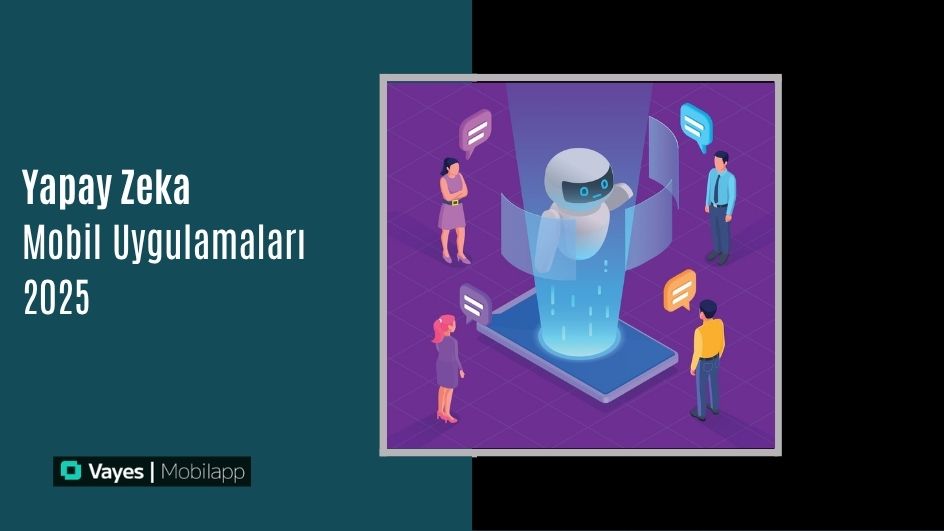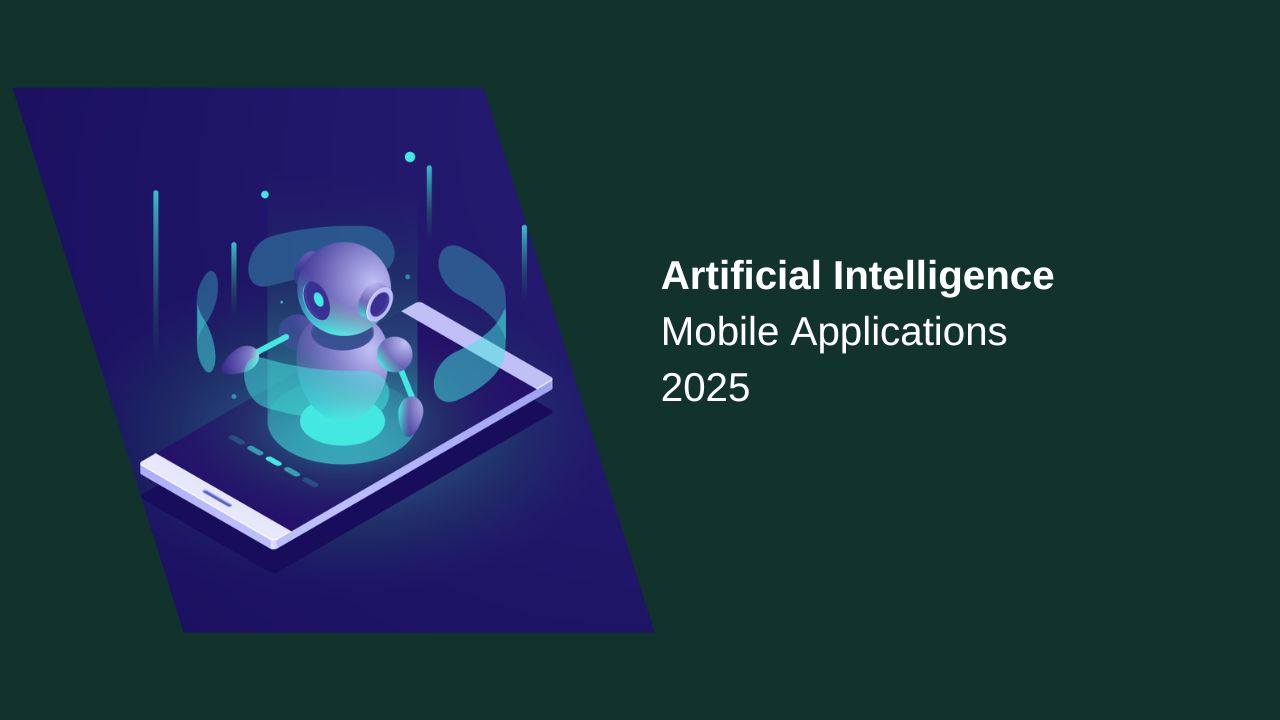Hello,
How Can We Help You?
Contact Form
Fill out the form and we will contact you as quickly as possible.
|

In 2025, artificial intelligence plays an active role in mobile applications, from personalizing user experiences to enhancing security. It has become a core component of applications across various sectors, including healthcare, finance, education, and e-commerce, beyond just messaging or recommendation systems.
Artificial intelligence enables mobile applications to analyze user behavior and provide smarter recommendations. For example, a shopping app can highlight products tailored to a user’s past preferences. Similarly, a fitness app can create personalized workout plans based on the user’s goals and performance data.
Most applications developed in 2025 integrate natural language processing (NLP) and image processing as part of AI technologies. This paves the way for the widespread use of voice assistants, chatbots, and augmented reality-based features.
Artificial intelligence is no longer just an “extra”; it has become an indispensable building block for the success of mobile applications.
Many mobile applications we use daily are powered by AI technologies in the background. These applications enhance user experience and make processes much more efficient.
Some of the most well-known examples are voice assistants like Google Assistant and Siri. These applications use natural language processing (NLP) to understand and respond to user commands. Platforms like Spotify and Netflix use artificial intelligence to analyze user habits and offer personalized recommendations, tailoring content to individual tastes.
Maps and navigation apps (e.g., Google Maps) analyze real-time traffic data to suggest the shortest routes. Similarly, mobile banking applications leverage artificial intelligence to detect fraud risks by analyzing user behavior.
Additionally, photo editing apps (e.g., FaceApp or Photoshop Camera) use image processing techniques to recognize facial expressions and apply automatic filters.
These examples demonstrate that artificial intelligence has become an invisible yet essential part of our daily mobile habits.

In 2025, AI-powered mobile applications are accelerating transformation across various sectors and providing businesses with a competitive edge. They are actively used in healthcare, finance, e-commerce, education, and transportation sectors.
In healthcare, mobile applications developed with artificial intelligence assist doctors and patients in areas such as disease tracking, early diagnosis, virtual consultations, and personalized health recommendations. For instance, an app can analyze a user’s symptoms and alert them to potential risks in advance.
In finance and banking, AI systems analyze users’ spending habits to offer budget recommendations, detect fraud, and provide investment advice.
The e-commerce sector uses artificial intelligence to deliver personalized shopping experiences. Chatbots, product recommendation systems, and dynamic pricing strategies are managed through mobile applications.
Education apps personalize content based on students’ learning pace and level. The transportation and logistics sector leverages artificial intelligence for route optimization and estimated delivery times.
Artificial intelligence powered mobile applications require the highest level of precautions for user data security. At MobilApp, we place data security at the core of every project we develop. While integrating AI technologies, we also create infrastructures that ensure data encryption, anonymization, and access only by authorized parties.
All mobile application projects fully comply with GDPR, CCPA, and other international data protection standards. All personal data collected from users is processed only to the extent necessary and is securely stored in our systems. We follow a “privacy by design” approach during development, integrating security measures from start to finish.
Data used to train AI models is anonymized to ensure the protection of personal information.
MobilApp not only creates smart and innovative applications but also protects user data in the most secure way. This approach forms the foundation of sustainable trust in mobile applications.
Artificial intelligence is no longer just a supportive tool in mobile applications; it plays a direct role in shaping user experience. At MobilApp, we aim to deliver fast, intuitive, and personalized experiences that instantly meet user needs. The primary AI technologies that enable this are the foundation of an application’s success.
Machine learning analyzes user behavior to enable applications to offer personalized recommendations. For example, content rankings change based on user habits, or the interface adapts to the user. Natural language processing (NLP) technologies make in-app interactions smoother through chatbots and voice assistants.
Image processing (computer vision) enhances interaction in camera-supported applications with features like facial recognition, object analysis, and augmented reality. Similarly, learning algorithms enable applications to improve with each use, delivering more accurate content to users.
MobilApp doesn’t just integrate AI technologies; it optimizes them in every project to maximize user experience.
In 2025, consumer behavior is centered around speed, personalization, and interaction. Users now prefer applications that not only function well but also understand them, offer recommendations, and save time. To meet these expectations, it is crucial for brands to adopt AI-powered mobile applications.
Artificial intelligence analyzes user data to create personalized application experiences. Content tailored to preferences, shopping recommendations, dynamic interfaces, and automated assistants increase user satisfaction and loyalty, directly contributing to conversion rates and brand image.
At the same time, artificial intelligence provides businesses with operational efficiency. Automated customer service, behavior-based campaigns, and real-time feedback systems enhance competitiveness.
In today’s digital world, a strong mobile presence is no longer just a technical matter; it is a strategic investment. An AI-powered mobile application is a vital building block for a brand’s present and future.
Contact Form
Fill out the form and we will contact you as quickly as possible.
 Notification Center 00:00
Notification Center 00:00